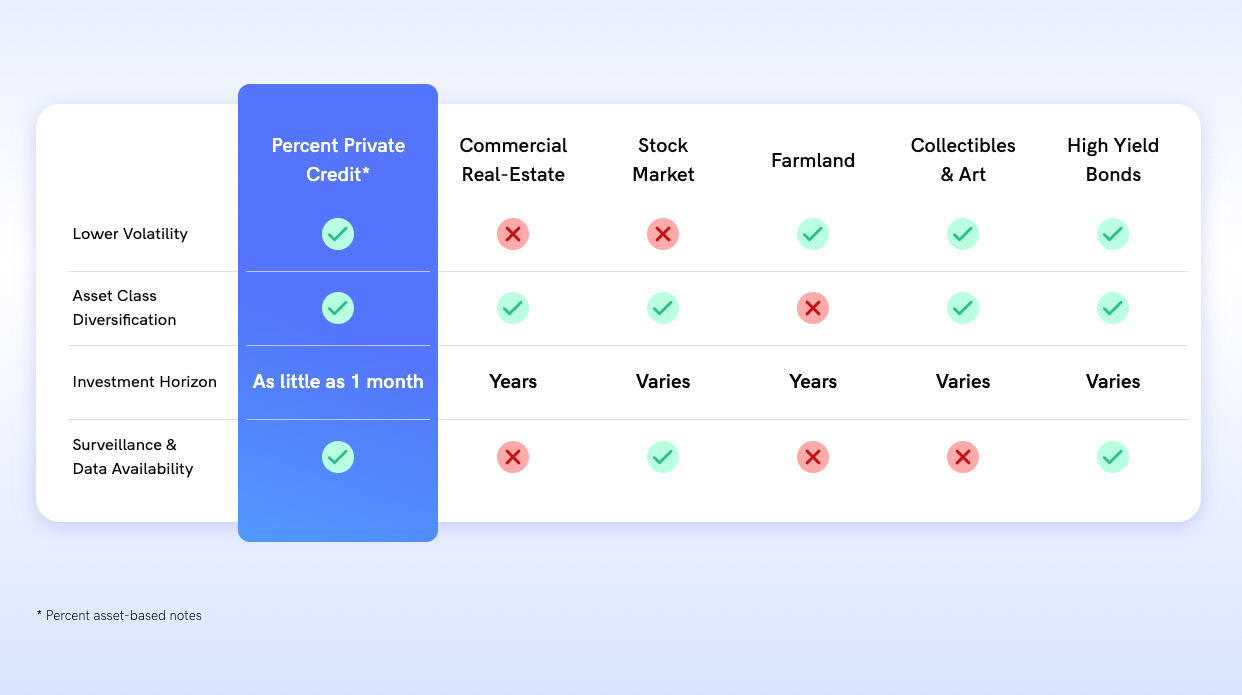All Categories
Featured
Table of Contents
To ensure that certified financiers will certainly have the ability to form a detailed and diverse portfolio, we picked platforms that might satisfy each liquidity requirement from temporary to lasting holdings. There are various investment possibilities certified investors can explore. Yet some are riskier than others, and it would depend on your threat hunger whether you would certainly go all out or not.

A property financial investment fund is just one of the many ways you can buy property. Real estate investment choices like straight specific financial investment, property restricted partnerships (LPs), property investment company (REITs), and real estate mutual fund have their pros and cons. Of all the choices, an actual estate investment fund is usually the most effective one for those just beginning their property spending journey.
Picture resource: Getty Images. A mutual fund is an entity developed to pool capitalist cash and jointly purchase safeties such as stocks, bonds, or property. A real estate mutual fund is a combined source of funding used to materialize estate investments. Realty investment funds share some resemblances with property investment trusts (REITs); they're both pooled resources of capital used to purchase property.

These entities spend money merged from investors right into a varied portfolio of real estate chances, consisting of REITs, real-estate-related business, and realty buildings. Most real estate mutual funds are open to all capitalists as long as they satisfy the minimal financial investment demand. Financiers can buy most mutual funds through an economic consultant, though some are offered through on-line broker agents.
How do I exit my Accredited Investor Real Estate Investment Groups investment?
They track an underlying index enabling investors to gain market-matching returns (minus expenditures). Actual estate ETFs are open to the public and trade on significant supply market exchanges., not the basic investing public.
A couple of notable ones are: Diversification: A lot of genuine estate financial investment funds use investors wide exposure to the actual estate industry. Reduced preliminary investment threshold: Many actual estate funds have fairly low initial investment thresholds (typically less than $10,000 for a common fund and not much more than $100 for most genuine estate ETFs).
On the other hand, real estate funds are much extra hands-off investments because others manage the energetic monitoring of the properties. Real estate financiers have many outstanding fund alternatives readily available to them these days.
This genuine estate common fund has a minimal investment of $3,000 and charges a low cost ratio of 0.13%. The fund buys a broad array of REITs, offering financiers exposure to the whole realty market. Lead likewise uses an ETF version, Vanguard Real Estate ETF (-0.03%), which offers financiers the same wide REIT direct exposure and low expense ratio.
It also has a low cost proportion (0.09%) and share rate (around $40 in mid-2024).
What is the most popular Accredited Investor Real Estate Investment Groups option in 2024?
These funds also enable capitalists to passively join realty investments, releasing up their time for various other things. Realty funds can be an ideal alternative for those just beginning their property investing journey. Matt DiLallo has no setting in any one of the stocks discussed. The Motley Fool has positions in and advises Vanguard Realty ETF.
Lots of options that fit varying risk accounts and investing preferences are readily available on the most effective investment systems for accredited financiers (Exclusive Real Estate Crowdfunding Platforms for Accredited Investors). It's important to understand which are best for accredited capitalists in order to take advantage of special deals, expand portfolios, improve returns, see new trends, and get expert suggestions. If you are seeking to spend as a deportee or high-net-worth person, which is what I specialize in, you can email me () or WhatsApp (+44-7393-450-837)
Ultimately, the best platforms depend on where you are based, your risk profile and what you want to accomplish. People or organizations that certain financial demands from regulators are what's considered accredited financiers.

We are a technology business that utilizes software application and experience to bring lending institutions and debtors together. We make use of cookies to supply you with a great experience and to assist our site run successfully.
Who has the best support for Real Estate Investing For Accredited Investors investors?
An accredited investor is a person or entity that is allowed to invest in safety and securities that are not signed up with the Stocks and Exchange Commission (SEC). To be an accredited financier, a private or entity needs to satisfy particular revenue and web worth guidelines. It takes cash to generate income, and approved capitalists have much more possibilities to do so than non-accredited capitalists.
The requirements of who can and who can not be a certified investorand can take component in these opportunitiesare identified by the SEC. There is an usual misunderstanding that a "procedure" exists for a specific to come to be an accredited investor.
The worry of verifying a person is an accredited capitalist falls on the investment vehicle instead of the capitalist. Pros of being a certified financier include accessibility to unique and restricted financial investments, high returns, and raised diversification. Cons of being a certified investor include high danger, high minimum investment quantities, high fees, and illiquidity of the investments.
What should I look for in a Accredited Investor Real Estate Crowdfunding opportunity?
Policy 501 of Regulation D of the Securities Act of 1933 (Reg. D) offers the definition for a recognized financier. Simply put, the SEC specifies an accredited financier via the confines of income and net well worth in two means: An all-natural individual with earnings surpassing $200,000 in each of the two newest years or joint earnings with a spouse exceeding $300,000 for those years and a practical assumption of the same revenue level in the present year.
Approximately 14.8% of American Homes certified as Accredited Investors, and those households managed about $109.5 trillion in riches in 2023. Determined by the SCF, that was around 78.7% of all exclusive riches in America. Rule 501 likewise has provisions for corporations, collaborations, charitable organizations, and rely on enhancement to business supervisors, equity owners, and banks.
People that base their certifications on annual revenue will likely need to send tax returns, W-2 types, and other files that suggest salaries. Accredited investor designations likewise exist in other nations and have similar needs.
Individuals that base their qualifications on annual income will likely need to send tax obligation returns, W-2 forms, and various other files that indicate incomes. Approved investor classifications likewise exist in other nations and have similar requirements.
Individuals that base their certifications on annual revenue will likely require to submit tax returns, W-2 types, and various other documents that indicate earnings. Certified financier designations additionally exist in other countries and have similar demands.
Latest Posts
Tax Defaulted Homes For Sale
Property Tax Default Auctions
How To Find Tax Lien Properties